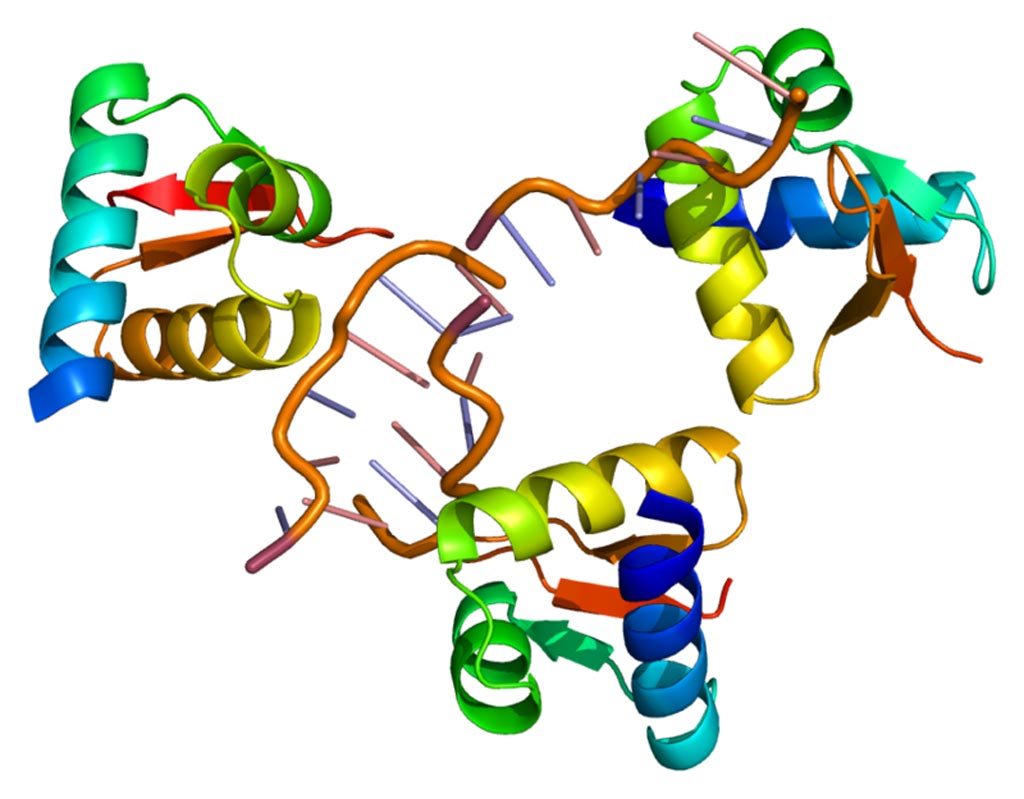Inhibition of RNA-Editing Enzyme Sensitizes Tumors to Immunotherapy
By LabMedica International staff writers
Posted on 14 Jan 2019
An international team of cancer researchers has reported that by blocking the function of the RNA-editing enzyme ADAR1 (Adenosine Deaminase Acting on RNA1) in tumor cells, they could profoundly sensitize tumors to immunotherapy and overcome resistance to checkpoint blockade therapy.Posted on 14 Jan 2019
Checkpoint inhibitor therapy is a form of cancer treatment immunotherapy, which targets immune checkpoints, key regulators of the immune system that stimulate or inhibit its actions. Tumors can use these checkpoints to protect themselves from attacks by the immune system. Checkpoint therapy can block inhibitory checkpoints, restoring immune system function. However, most cancer patients either do not respond to immune checkpoint blockade or develop resistance to it, often because of acquired mutations that impair antigen presentation.

Image: The structure of the ADAR protein (Photo courtesy of Wikimedia Commons).
Investigators at Bar-Ilan University (Ramat Gan, Israel), Harvard Medical School (Boston, MA, USA), and their collaborators reported in the December 17, 2018, online edition of the journal Nature that in the absence of ADAR1, A-to-I editing of interferon-inducible RNA species was reduced.
Adenosine-to-inosine (A-to-I) modifications contribute to nearly 90% of all editing events in RNA. The deamination of adenosine is catalyzed by the double-stranded RNA-specific adenosine deaminase (ADAR), which typically acts on pre-mRNAs. The deamination of adenosine to inosine disrupts and destabilizes the dsRNA base pairing, therefore rendering that particular dsRNA less able to produce siRNA, which interferes with the RNAi pathway.
The investigators found that loss of ADAR1 overcame resistance to the PD-1 (Programmed cell death protein 1) checkpoint blockade caused by inactivation of antigen presentation by tumor cells, which resulted in growth inhibition and tumor inflammation.
"We found that if the mechanism is blocked, the immune system is much more sensitive. When the mechanism is deactivated, the immune system becomes much more aggressive against the tumor cells," said contributing author Dr. Erez Levanon, associate professor of life sciences at Bar-Ilan University.
Related Links:
Bar-Ilan University
Harvard Medical School













